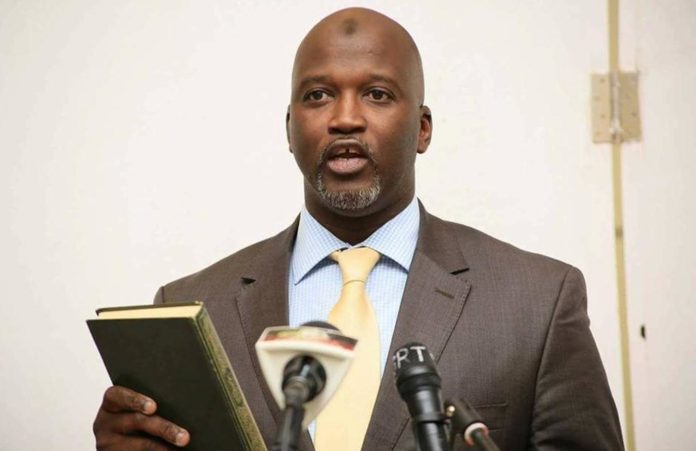Section 6 of the Truth, Reconciliation and Reparations Commission Act states:
“The Commission shall –
- be impartial and fair in the performance of its functions; and
- not be subjected to the direction or control of any person or authority.”
This simply means that no authority should involve itself in the deliberations of the TRRC. Every order or any action to be taken on a matter before the TRRC must emanate from the TRRC itself. This is the simple and ordinary meaning of the text.
The Commission is not a court. It is supposed to gather facts and make recommendations to the President based on the facts with regards to the creation of institutions conducive to the development of a stable and democratic society as well as the institutional, administrative and legislative measures which should be taken in order to prevent the commission of violations and abuses of human rights.
The Commission encourages a witness to even implicate himself in contradiction to the right not to give evidence that may be used against the person so that the truth may be known once and for all, hoping that, that would lead to a closure in order for a new Gambia to be born.
Foroyaa is still trying to digest a press release from the office of the Attorney General. The press release did not mention any order given by the TRRC relating to contempt emanating from a witness. We will try to interview the Attorney General to clarify the points of doubt and the legal basis for the conclusions drawn and the measures proffered in the following press release which is hereby published to use it as a base for throwing light on where the powers of the TRRC stops and that of the Attorney General starts:
“PRESS RELEASE BY THE MINISTRY OF JUSTICE ON JOHN C.B. MENDY
“The Ministry of Justice wishes to inform the general public that it has requested The Gambia Police Force to arrest and detain Mr John C.B. Mendy who was attempting to leave the country today, 2 April 2019, for Casamance in the southern region of Senegal through the Giboro/Sileti border crossing.
“The public will recall that Mr J.C.B. Mendy appeared before the Truth, Reconciliation and Reparations Commission (TRRC) on 19 and 20 March 2019 and testified about many events including the 11 November 1994 incident. Based on a totality of the evidence adduced before the TRRC so far, and in light of other available evidence in the possession of the TRRC, it was evident that Mr J.C.B. Mendy was “outrageously dishonest” in his testimony about his role in several incidents of violence. Mr Mendy’s “outrageous dishonesty”, in the face of overwhelming evidence to the contrary, betrayed a lack of empathy towards the families of the victims and the unwillingness to cooperate and assist in the reconciliation process in the country. Consequently, the Attorney General, in order to encourage truth-telling before the TRRC and strongly discourage any attempts to deliberately conceal the truth in the face of mounting evidence, recommended the immediate dismissal of Mr J.C.B. Mendy and requested the cooperation of his employers at The Gambia International Airlines (GIA) in this regard.
“The Ministry wishes to re-iterate its call for all witnesses who appear before the TRRC to be truthful at all times especially in respect of their involvement in human rights violations and abuses. The country needs to establish the truth about these events and the families of the victims deserve to know the truth about their loved ones. The perpetrators are particularly encouraged to be truthful and to take advantage of the amnesty provisions at the TRRC and give reconciliation a chance. The Ministry would like to further reassure the general public that the TRRC process is not a witch hunt and that there is no need for anyone to abscond from the country, but that any attempts to deliberately conceal the truth in the face of overwhelming evidence will be regarded as an attempt to undermine the integrity of the process, and an unwillingness to cooperate and assist in the reconciliation process, and will therefore bear serious consequences.
Meanwhile, the public will be informed about further developments in the J.C.B. Mendy case as it unfolds.
Ministry of Justice
2 April 2019”
We hope the Attorney General will review the content of this press release again and interrogate whether witnesses abroad who may have been willing to come to give implicating evidence would actually feel safe to come to testify. The Attorney General should further examine whether a person could be considered to be absconding unless one is under bail condition of one form or another or restrained from leaving the country by an adjudicating authority.



















